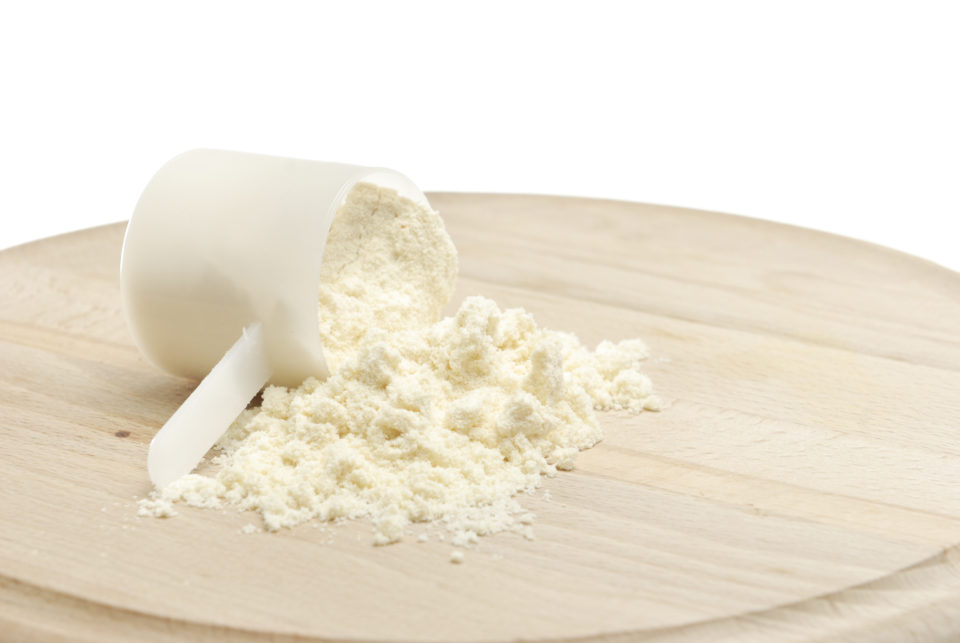
(UPDATE: An editor’s note regarding the research covered here has been added to the end of this article.)
A case report from India has connected products from Herbalife to acute liver failure. The findings follow similar reports from other countries, including Israel, Spain, Switzerland, Iceland, Argentina and the United States. The study, published in the March-April issue of the Journal of Clinical and Experimental Hepatology, also points out the dangers associated with herbal and dietary supplements (HDSs), many of which promise results with no factual basis.
The case report highlights a 24-year-old woman with hypothyroidism who was otherwise healthy but taking thyroxine supplementation. She initiated three Herbalife products: Formula 1 Shake Mix (two scoops/day with skim milk), Personalized Protein Powder (two tablespoons twice/day into the Shake Mix), and Afresh Energy Drink (10 g twice/day).
Two months after starting these supplements, the patient had a week of lost appetite and then followed by jaundice and transient pruritus.
“Initial blood work revealed that total serum bilirubin level was12.4 (upper limit of normal [ULN] 1.1 mg/dL); direct bilirubin, 9.9 (ULN 0.2 mg/dL); aspartate aminotransferase,582 (ULN 36 U/L); alanine aminotransferase, 648 (ULN45 U/L); alkaline phosphatase, 248 (ULN 120 U/L);gamma-glutamyl transferase level, 398 (ULN 35 U/L); albumin, 3 (ULN 5.5 g/dL) and international normalised ratio,4.7 (normal < 1.2),” the report details. When the patient’s jaundice worsened, she went to the emergency department. Blood tests were performed for conditions including hepatitis and HIV.
“A transjugular liver biopsy showed extensive periportal and perivenular bridging necrosis with moderate-to-severe mixed inflammatory infiltration, interface hepatitis, cholangitis, severe ballooning, steatosis and intracanalicular cholestasis,” according to the report. The patient was referred to a transplant center and placed on a waiting list but soon died.
An Assessment of Herbalife
The doctors considered the possibility that Herbalife had contributed to the patient’s liver injury but were unsuccessful in obtaining products from the patient’s grieving family, but they obtained one product from the same seller the patient purchased her products from—it was also discovered that this distributor was operating without a license and was eventually shut down by the Department of Health and Human Services, Government of Kerala. Other Herbalife products were purchased online.
Upon analysis, all of the sourced Herbalife products contained high levels of heavy metals, and 75% of the samples contained undisclosed toxic compounds, while 63% of the samples contained bacterial deoxyribonucleic acid. Upon RNA analysis, multiple bacterial communities were discovered in Herbalife products—“including highly pathogenic species.” Yet Herbalife is not the only herbal and dietary supplement with negative effects: Hydroxycut and Garcinia cambogia may also lead to liver failure.
Health Supplements Likely Do More Harm Than Good
The researchers pointed out that many products advertised as nutritional supplements based in wellness not only have no health benefits but could in fact be harmful. Often, these products boast potential outcomes with no clinical evidence to support the company’s claims.
“As with any drug, it is important to put HDSs through preclinical and clinical scientific studies and postmarketing vigilance so that unknown and potentially harmful causes for severe adverse effects, such as liver failure due to the use of such agents, may be more identifiable and controlled,” the researchers wrote.
Learn more about the harms of supplements on teens and young adults.
—————-
Editor’s Note – Jan 2, 2020:
The DocWire News article entitled “Herbalife ‘Scam’ Weight Loss Product Associated with Fatal Liver Failure,” published online November 25, 2019, referred to in the first paragraph and elsewhere a case report published in the Journal of Clinical and Experimental Hepatology that has since been removed by its publisher (Elsevier) for legal reasons following a complaint from Herbalife. According to a notice from Herbalife counsel, the “[…] article has been removed by Elsevier BV the publisher following a complaint by us [Herbalife] that the article is untrue and defamatory.”
According to Elsevier’s article withdrawal policy, “[…] removal of an article from the online database will only occur ‘where the article is clearly defamatory, or infringes others’ legal rights, or where the article is, or we have good reason to expect it will be, the subject of a court order, or where the article, if acted upon, might pose a serious health risk.’”
DocWire News and other online media outlets have reported on the case report in question, which was widely reported on in 2019. According to Elsevier, “the article, which was published in the March-April 2019 issue of the journal, has been removed for legal reasons. However the decision to remove the article does not imply admission of any allegation made about the article by any party.”






 © 2025 Mashup Media, LLC, a Formedics Property. All Rights Reserved.
© 2025 Mashup Media, LLC, a Formedics Property. All Rights Reserved.